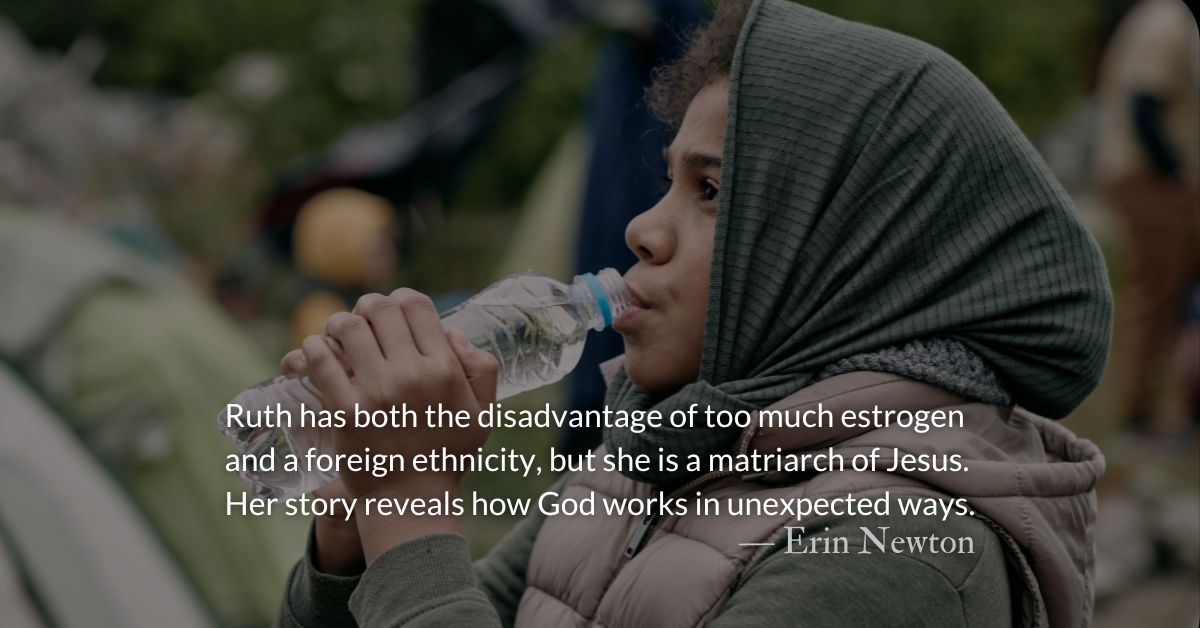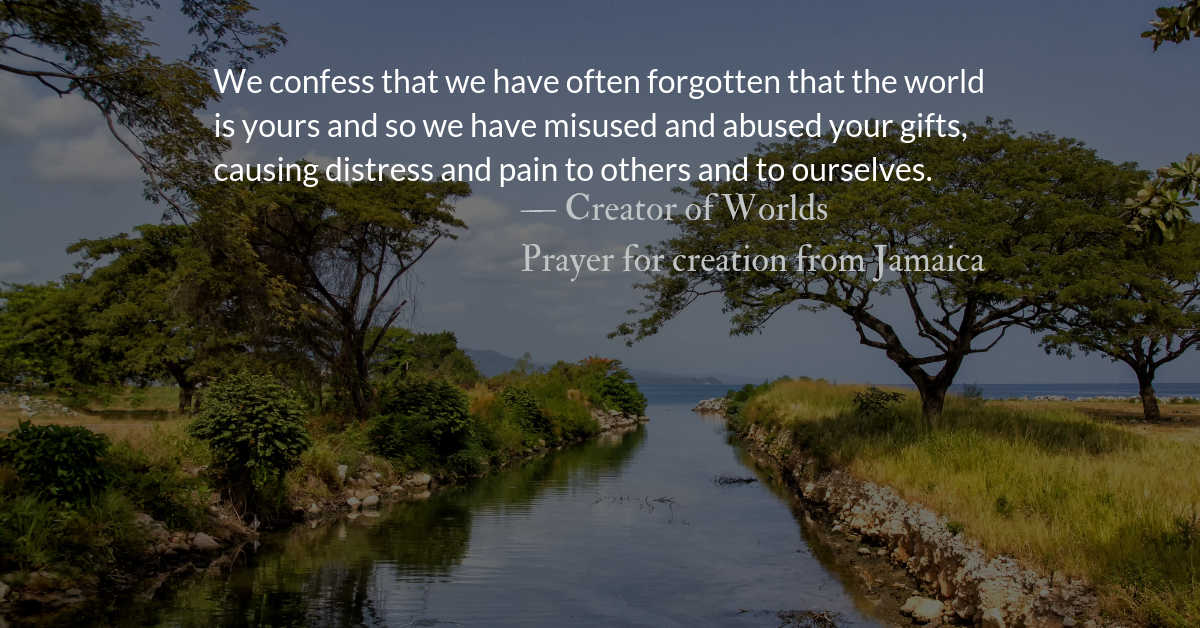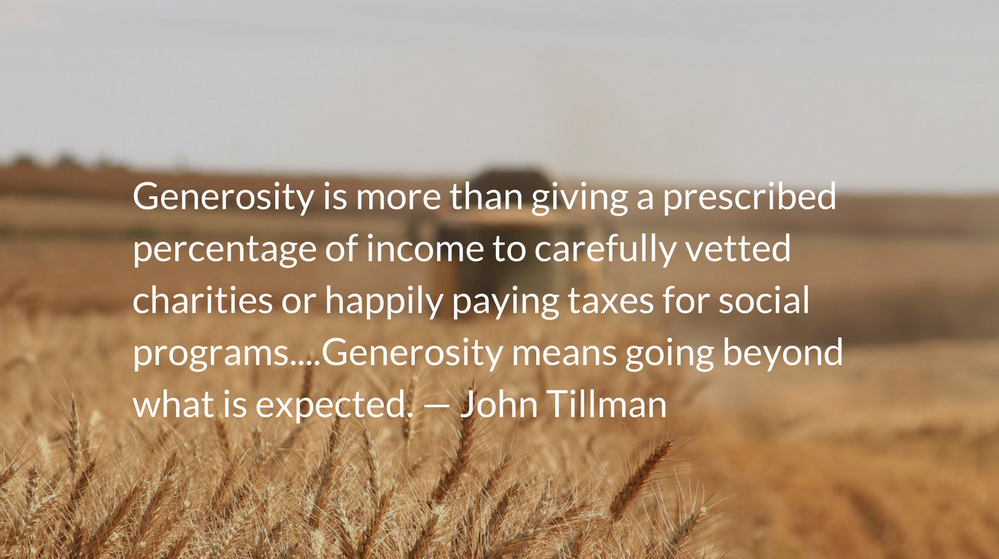Links for today’s readings:
Read: Ruth 1 Listen: (3:33) Read: Hebrews 9 Listen: (4:40)
Links for this weekend’s readings:
Read: Ruth 2 Listen: (3:56) Read: Hebrews 10 Listen: (5:33)
Read: Ruth 3-4 Listen: (6:24) Read: Hebrews 11 Listen: (6:22)
Scripture Focus: Ruth 1.20-22
20 “Don’t call me Naomi,” she told them. “Call me Mara, because the Almighty has made my life very bitter. 21 I went away full, but the Lord has brought me back empty. Why call me Naomi? The Lord has afflicted me; the Almighty has brought misfortune upon me.” 22 So Naomi returned from Moab accompanied by Ruth the Moabite, her daughter-in-law, arriving in Bethlehem as the barley harvest was beginning.
From John: After the tough-to-read stories of Judges, I hope you enjoy Ruth this weekend. Take some time to soak in this story, remembering that it happened right in the midst of the chaos of Judges.
Reflection: Faith Through The Famine
By John Tillman
Ruth’s tale cuts through despairing clouds of Israel’s chaos and civil war with hope-tinged sunlight. After Judges, Ruth is a much-needed palate cleanser. Chapter one starts with a famine and ends with a harvest.
The famine forced Elimelek and Naomi’s family to immigrate to the hostile nation of Moab. Moab was one of the first oppressors Israel suffered under in Judges. The famine must have been severe for them to flee to Moab.
While in Moab, things got worse. Elimelek died. Then Naomi’s sons died. Having nowhere else to go, Naomi prepared to return to Bethlehem. She told Ruth and Orpah to return to their families because God’s hand was against her. But Ruth stayed.
Despite Naomi’s dark bitterness, Ruth must have seen glimmers of hope in Naomi’s God. She uprooted herself from Moab, cutting herself out of Esau’s vine.
Ruth didn’t yet know that she could be grafted into Jacob’s vine. (Romans 11.17-24) She didn’t yet know that she would bear fruit that would bless the entire world through Jesus. She just knew that this God Naomi worshiped would be her God too.
There’s a common simplistic teaching that tells sufferers to celebrate because, “God is using it” or “God sent this for a reason.” These well-meaning people have no idea if their unpalatable platitudes are true.
First of all, truly evil things are not from God’s hand. (1 John 1.5; James 1.13-17; Psalm 92.15) Second, though God may discipline or test us with suffering, he doesn’t expect “happy-clappy” celebrations in the midst of it. God didn’t demand Job to throw a party or berate Naomi for her bitterness.
God is not the author of evil, but he does take evil and write a better ending than evil intends. (Genesis 50.20) Naomi’s story has a similarity to Israel’s.
Famine drove Israel to immigrate to Egypt and Naomi to Moab. As refugees, Israel reunited with Joseph and Ruth was united to Naomi. Through Joseph, Israel, Egypt, and surrounding nations were saved. Through Ruth, Naomi, Israel, and all nations were blessed, first through David, who saved them from political instability and oppression and ultimately through Jesus, who saves us from sin and death.
Have faith, even through famines. Don’t try to force feelings you don’t have, but recognize that the story’s end is known. We are moving from famine to harvest. No matter where you are in the story, God is with you.
Divine Hours Prayer: The Greeting
Restore us, O God of hosts; show the light of your countenance, and we shall be saved. — Psalm 80.3
– Divine Hours prayers from The Divine Hours: Prayers for Summer
by Phyllis Tickle
Read more: Ruth’s Story
She, like Rahab, heard the stories of God in her foreign land…decided by faith for “your God” to become “my God.”
Read more: Ruth, the Immigrant
Ruth shows us how God’s grace helps us immigrate from our own selfish kingdoms to the kingdom of God.






